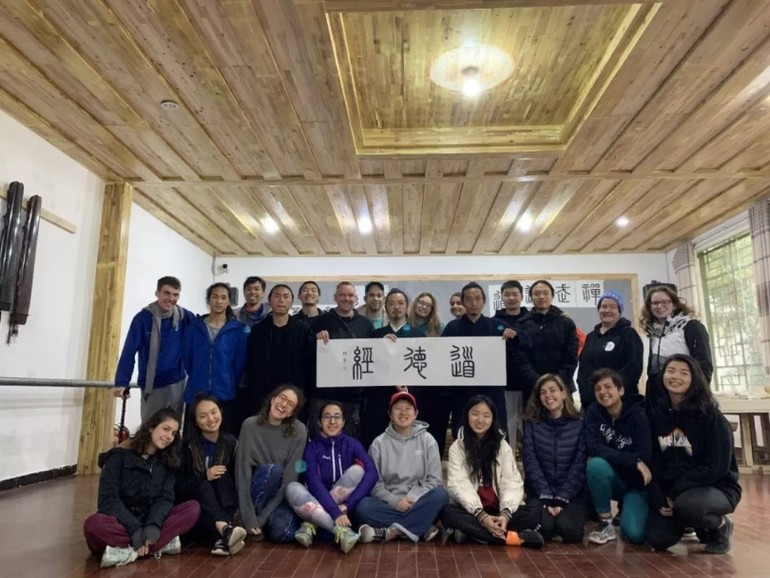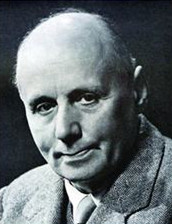A Glimpse of Kung Fu and Daoism at Wudang Mountains
Issue date:2019-04-25
March 23rd to March 30th was the Project Week for students of the graduating class of UWC Changshu China. They went to different parts of China to engage in various projects that they arranged by themselves focusing on themes such as service, Chinese cultural exploration and fact finding. This forms an important part of UWC education, which embodies the education philosophy of “Learning by doing.”
For the second year in a row, students of UWC Changshu China spent a week at Wudang Mountains to learn Kung Fu and the wisdom of Daoism during their Project Week. Bastian from Germany and Kayle from China shared their reflections of the week.
Historically and culturally, the Wudang Mountains are among the “Four Sacred Mountains of Daoism.” A group of 20 students and teachers of UWC Changshu China from six continents had a 23 hour long train ride to come to Shiyan City, Hubei Province in Wudang Mountains to learn Kung Fu and Daoism. They participated fully in the daily life of Kung Fu masters – waking up before sunrise for a morning run, training more than 4 hours of Kung Fu per day and learning Daoism in the evenings.

Kung Fu Academy
Bastian Mielke from Germany, one of the organizers of the trip probably wasn’t expecting to spend so much time practicing Kung Fu during this Project Week. He soon realized that Kung Fu can teach lessons of Daoism that no words can.

Bastian learning Kung Fu
“As one of the initiators and organizers of the Project Week in the Wudang Mountains, I had a clear vision for it – I wanted to learn about Taoism. This ancient Asian philosophy and religion had intrigued me, as an eager student of philosophy living in China, for quite some time. I agreed with fellow classmates, teachers, and advisors to incorporate art and filming into the process, so we could share with others the understanding we gained on the trip. I was aware that we would be hosted in a Kung Fu Academy, but I thought this trip would be a purely intellectually challenging experience. My expectation was to have thorough discussions about the Dao De Jing, the central piece of literature in Taoism, and spend the rest of my day contemplating. In reality it was much more physically and metaphysically challenging than expected.”

Reading Dao De Jing
"There are things that you can say easily but understand only with a lot of efforts and it turns out that Kung Fu was sometimes a shortcut towards these things that are harder to comprehend. One night, our supervisor and philosophy teacher asked us in one of our discussions about what we had learned about Taoism whilst doing Kung Fu, he asked us to only think, not speak. Then, after a short period, he asked: ‘Could I have explained any of this to you with words?’ and the answer was a unanimous ‘No!’ This project week made me understand that things can be good, even though they are different from what you expect. It also taught me about the big intersection between my physical challenges and intellectual inquiry and lastly gave me a greater understanding of the complexity of Chinese culture and how I fit into it."

Hiking in the mountain
Kayle Liao, from China, shares more details from the Kung Fu lessons and Dao De Jing discussions throughout this dynamic week. She, as many, struggled with some of the activities in the beginning, but the more she learned about Kung Fu and the Dao, the more exciting this whole project became:
"I was honestly a bit startled on the first day when we were asked to get up at 5:45 am to do a morning routine. The master said it was voluntary, but out of curiosity, everyone joined. Waking up so early wasn’t easy. Running wasn’t either - I struggled through my first morning run because I couldn’t keep up with the pace of others. Eventually I was left behind alone along the curly mountain roads, around me were the vague shapes of mountain trees which were about to absorb me. Luckily, in midst of the darkness stood the sunrise afar which added pinkish colors to its surroundings as if everything was painted from ink. Although I felt frustrated being unable to catch up with the others, I felt blessed to be presented the view in front of me, along with which the moment of me being with nature alone. The morning routine impressed me with all of its solitude and calmness that one is able to reflect upon throughout the way.
After breakfast, we had our first Kung Fu lesson. The moves all seemed easy at the beginning but only when the master started to correct us did we know how truly complicated it is. ‘Hands on your waist’, ‘Lower your body’, ‘weight on your right/ left foot,’ these were the commands we’ve been hearing throughout the way which made us realize how hard it is to achieve the perfection of each move. And that’s how our days started to go by.

Practising Kung Fu (Kayle in the middle)
One day during a break, Maria raised a question regarding the differences between Shaolin and Wudang Kung Fu. “Shaolin Kung Fu (Buddhist) is more ‘external,’ it focuses on the body’s exterior, strengthening muscle and building speed and strength, whereas Wudang Kung Fu (Daoist) is ‘internal,’ it’s about being modest and eliminates extravagance. It develops inner skills such as focus, awareness, and precision,” explained the master. Hearing that, I started to reflect upon my practices, trying to achieve the accuracy of each move. It was through the master’s explanation that I understood the essence of Daoist Kung Fu is all hidden within the precision of each punch and each kick.

As the only Chinese in my Kung Fu group, I had the privilege of interpreting the words of the master and translating to my friends. During the process of interpreting the words, understanding them and finding the most appropriate English words to explain to others, I not only discovered the breadth and depth of Chinese Daoist culture but also realized that there are no boundaries for the wisdom of ancient people to be passed down. I served as a bridge between my own culture and the world which was definitely one of my biggest highlights of the trip.
I am still surprised at the constancy of some sayings in the Dao De Jing and how it could still be related in our society and used to explain modern phenomena. An interesting debate occurred during one of our Dao De Jing discussions on one of the quotes which, and I quote, referenced ‘exterminate learning’. Most of us held strong objections against it in the beginning, but after Max, our philosophy teacher, explained it to us, I understood that it is the state of being content with the thinking the Tao has been promoting. Don’t rush, don’t complain and just enjoy the moment.

A group picture with our Kung Fu masters
hrough the project week, I learned a lot about my own culture, which was also one of my intentions before coming. It was through living on a mountain surrounded by farm land and village cottages that I realized the significance of agriculture for China. It was through learning Kung Fu that I realized the virtue of being modest and remembering my ancestors. It was through those philosophical conversations and hiking trip on Wudang Mountain that I understood the existence of the Dao, or ‘the way’ penetrated everywhere in our lives."
Editor: Polly Genova
Video: Maria Zervoulakou, DP2, Greece
Photo:Polly Genova, Maria Zervoulakou










